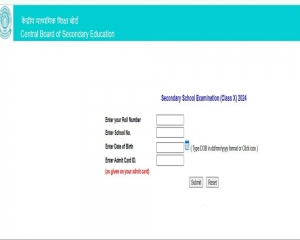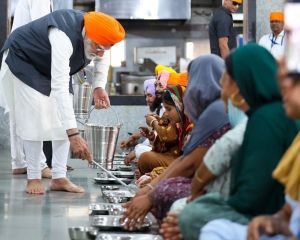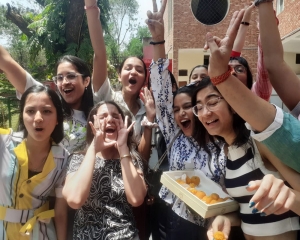In a significant development that occurred a couple of days after the consecration of the Ram Temple in Ayodhya, the Archaeological Survey of India (ASI) released a report on Thursday evening confirming the existence of a large Hindu temple prior to the construction of the existing structure.
On Wednesday, a Varanasi district court directed that the scientific survey report, prepared by the ASI on the Gyanvapi mosque in July 2023, be supplied to all parties involved in the dispute. Judge AK Vishvesha ordered that all parties to the case should have access to the report concerning the mosque. Following the distribution of the ASI report, all parties will have the right to comment on the findings."
The Hindu advocate, Vishnu Shakar Jain, told the media and read out a few details from the ASI report supplied to both Hindu and Muslim parties. The findings clearly indicate that the mosque was built over an old temple.
The last page of the ASI report, a copy of which is also with The Pioneer, states: “The structure appears to have been destroyed in the 17th Century during the reign of Aurangzeb, and part of it was modified. Based on scientific studies/surveys conducted, the study of architectural remains, exposure of features and artifacts, inscriptions, art, and sculptures, it can be concluded that there existed a Hindu temple before the construction of the existing structure. “
The court on Wednesday had said that both parties involved in the suit must be provided with copies of the survey report to enable them to file objections against the ASI report if they deem it necessary. The court emphasised that without providing a copy of the survey report to the parties, it would be impossible for them to file objections.
For this purpose, the court suggested that the sealed envelope containing the survey report presented by the ASI could be opened by the appeal clerk. The court added, “Subsequently, copies can be provided to the concerned parties upon their request, following the relevant legal provisions and rules.”
In July of last year, the court had directed the Director of the ASI to conduct a scientific survey of the Gyanvapi mosque premises, excluding the area previously sealed by the Supreme Court (wuzukhana or an ablution pond). The ASI successfully carried out the survey.
In August of the same year, the Supreme Court rejected the plea by the Muslim party challenging the survey. The court asserted that the High Court's order for the survey did not warrant interference by the apex court at this stage, citing a similar survey conducted in the Ayodhya case.
The Muslim parties had also filed an application under Order VII Rule 11 of the CPC challenging the maintainability of the suit. They argued that the Places of Worship Act of 1991, introduced during the height of the Ram Janmabhoomi movement, aims to protect the status of all religious structures as they stood on August 15, 1947. Both the district court and the High Court rejected this application, affirming the suit's maintainability.


























